In the rapidly evolving world of artificial intelligence, few experts have achieved the same level of success as Cornelia Schaurecker.
A Global Advisory Board member and three-time recipient of the DataIQ TOP 100 “Data Titan” accolade, Cornelia is not only a transformational technology leader but is considered a true visionary in the field. With a track record as a driving force behind business value creation through AI, Big Data, cloud, digitization, and agile innovation, as well as for generating hundreds of millions of euros in revenue and cost savings, Cornelia’s insights into the realm of AI are invaluable. We caught up with her in the summer at The Digital Lounge@Lakeside 2023 Summit hosted by DMI and JiVS, where she shared her strategies for navigating through the world of artificial intelligence and towards business success.
Understand the Business Perspective and Select the Right Use Cases
First and foremost, Cornelia emphasizes the importance of starting with a clear business perspective. Why is this important? Many companies have been suffering from disjointed data strategies, insufficient data availability or quality, lack of transparency regarding use cases and their business value and therefore a lack of not being able to deliver to the organisation’s true opportunities.
Therefore, when approaching AI implementation, you must identify your business’s needs and goals first, and invest in transparency whilst keeping this process pragmatic. Are you looking to increase revenue, reduce costs, or enhance product quality, or all of this? What TOP business problem or opportunity do you wish to support with AI? The answers to these questions will lay the foundation for your AI journey. Once you’ve identified your business objectives, the next step is to pinpoint the most promising use cases including the underlying data assets and build up a use case portfolio, carefully evaluating the potential impact of each use case and considering factors like data availability and quality, in-house expertise, potential delivery impediments and impact on speed as well as the need for external partnerships.

Prototype, Measure, and Scale!
In the next stage, Cornelia recommends focusing on the highest-value use cases first, in alignment with the organisation’s goals, develop in agile to show results quickly, measure, prototype and scale. This stage of the journey will be key in determining the viability of the use case. Cornelia suggests building prototypes quickly – Agile ways of working and rapid prototyping where meaningful will allow you to assess the feasibility of your AI solution and gather valuable insights from your business partners, as everything depends on fast feedback from a business value perspective.
What’s more, continuous measurement is essential, therefore you should monitor the results carefully and adjust your approach based on the data you collect. Once an AI solution proves successful for a particular use case, and there is business demand for scaling it to different parts of the organization, e.g. to further geographies and/or further products, it’s time to focus on scaling and automation. Cornelia’s experience in large multinational companies demonstrates that AI often leads to a multitude of new, additional questions and opportunities.
The key is to focus on the right use cases that can truly make an impact on your business. Scaling should be a deliberate process – not an attempt to do everything all at once. Cornelia acknowledges that in a larger organization, managing numerous AI initiatives can be challenging. This is why for maximum reutilisation of assets, she recommends a methodical approach, such as building a use case library and code repository to open source your assets within the organization, which also helps other parts of the organization to deliver at speed, avoiding reinventing the wheel. Companies can also implement all-in-one Data Product and AI portfolio management tools such as e.g. Mindfuel’s Delight to streamline the process for keeping track of their Data assets, and effectively prioritise their Data and AI Portfolios ensuring that the initiatives align with their business goals, demonstrating the planned and measured value delivered.
All About People and Ethics
There is widespread perception that AI generally leads to jobs being replaced. In fact, by introducing AI to tackle the most urgent use cases, it speeds up processes enabling people to do their jobs even faster and better. Cornelia rightly emphasizes that scaling AI is all about the people.
When it comes to the human factor, people also play a major role in ensuring ethical and responsible AI practices, which have never been as important as they are today. Cornelia also stresses the importance of creating an AI ethics framework and introducing an AI Governance and Ethics policy to make sure AI is developed responsibly, taking into account issues like privacy, security, and legislation. How to learn fast from others in this area? There is a collection of published best practice AI Policies on GitHub, from companies from A-Z including BMW, Vodafone, to mention only a few. Adopting a responsible and ethical approach to AI is not only needed for upcoming regulatory aspacts, but should also be set up to enabls companies to thrive and to make a positive contribution to customers, employees and the wider society.
Building a strong and diverse team of experts is crucial for success, whilst partnering with experts can enhance in-house capabilities. With the addition of AI, these teams become even higher performing. The rapid evolution of AI technology means that staying on top of the latest developments is essential. Understanding both the business problems and the technical opportunities is paramount if a company is to leverage AI effectively, especially considering how quickly AI has been evolving.
Data Integrity Matters
High-quality data is the lifeblood of any successful AI endeavor. Without reliable and accurate data, even the most advanced AI algorithms will falter. This is where experts like Data Migration International (DMI) come into play. With more than 3,000 successful data transformation projects completed globally, almost 30 years of industry expertise, and our unique, 100% compliant, cost-effective JiVS One Click transformation approach, DMI ensures that businesses have the high-quality data they need to successfully drive their AI initiatives.
The Future of AI
As someone who has worked with both large corporations, medium size as well as startups during her career, Cornelia is enthusiastic about the future of AI. She sees extensive opportunities for transferable AI use cases across industries, with many AI applications that can be leveraged from one sector to another, opening doors for smaller companies to benefit from the AI and data revolution. It can be said that AI has the potential to revolutionize how businesses operate, generate revenue, and serve their customers and employees. However, it’s not a one-size-fits-all solution. Achieving data and AI powered business success requires a thoughtful and strategic approach. As technology continues to evolve, staying agile and adaptable is key. AI is not a destination but a continuous journey. Embracing innovation and being open to new possibilities is what sets successful businesses apart.

So, whether you’re a startup, a small business, or a multinational corporation, the principles of AI success remain the same. With the right strategies, the right people, the right mindset, and the right AI governance and ethics, you can harness the full potential of AI to drive data product adoption with impact and hence drive your business forward leveraging your data and AI opportunities to your full potential in the future. If you would like to reach out to Cornelia for her advice on Data&AI strategy, feel free to reach out to her: www.linkedin.com/in/corneliaschaurecker
If you would like to learn more about the JiVS One Click Data Transformation approach, contact us today! If you would like advice for your own company to start.

Author: Cornelia Schaurecker
A Global Advisory Board member and three-time recipient of the DataIQ TOP 100 “Data Titan”
